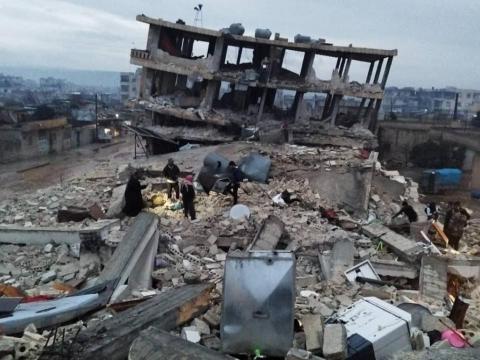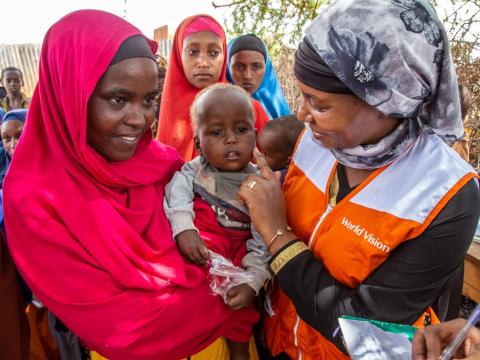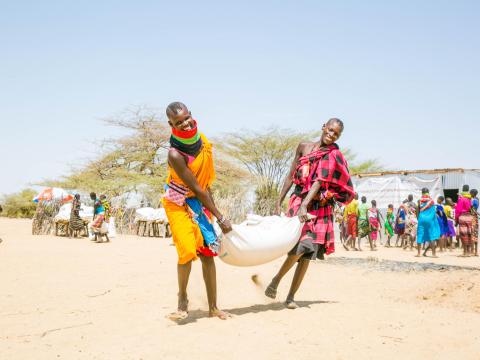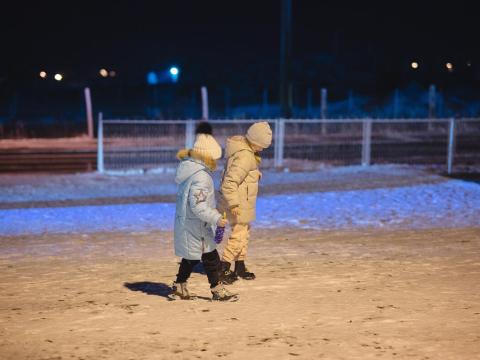
5 things we have learned responding to earthquakes
The lessons Isabel Gomes shares about responding to an earthquake are not what you might expect.
Haiti, Nepal, Indonesia, Syria, Türkiye. World Vision is no stranger to responding to major earthquakes that kill hundreds or thousands, rip up infrastructure and tear down homes. We grieve each time one occurs. Our own staff and their families are often caught up in them too. But with each one we learn more about the best ways to respond to this devastating force of nature. Key lessons include:
- Check in on our staff - Many of World Vision's staff and volunteers are local. There's a danger of forgetting that their homes may also be damaged or destroyed, and their families displaced and distressed. In the midst of chaos looking after staff so they can then look after others is key to an effective and sustained response. Failing to do this damages your most valuable asset – your staff.

- Assess the needs and coordinate - in the first hours and days we work with local authorities, other NGOs, the UN, and we talk to the communities themselves to identify the needs and gaps. Context matters. If shops and roads are still working then delivering cash to survivors may be better than trucking in food and clogging up roads. Coordination is critical. Double delivering aid to some people and none to others wastes aid and time which is why aid agencies, the government and the UN work closely together.

- Ensure children are protected - While it is vital to get life-saving aid to survivors, children need special care to deal with the invisible impacts of earthquakes that can leave them mentally and emotionally scarred by what they have experienced. This means providing safe spaces to play and regain a sense of normalcy, plus psychosocial support, and educational stimulation. These spaces also help minimise the risk to children of violence from survivors who are hugely stressed after having their lives turned upside down. Plus, they keep children away from those who might exploit their extreme vulnerabilities – resulting in trafficking, sexual abuse and early marriage.

- Partner with locals – The first responders to emergencies are always locals. They know the language, the context and have the connections. The notion of outsiders coming to the rescue and taking over is not something humanitarian agencies want to promote. Wherever possible, agencies want to partner with local organisations, support their efforts and build their skills, so that local civil society emerges from an emergency stronger and more equipped to deal with disasters.

- Survivors are not victims – This means, wherever possible, giving cash so survivors can spend their money on what they most need and delivering specialist items and assistance to meet unique needs – like female hygiene products for women, targeted help for those with disabilities, delivering public health and child protection messages or providing skills training for those trying to rebuild their lives. It also means listening to survivors so they can tell agencies what they are doing well or not so well, so adjustments can be made. Increasingly survivors are seen as clients with rights and not simply as ‘beneficiaries'.

It is only with the generous help of our supporters and grant donors that we are able to spring into action and meet the needs of those affected by these terrible events. It is only through the bravery and commitment of our staff – and the people they partner with - on the ground that we are able together to meet overwhelming needs of affected children and their communities.
To learn more about World Vision's work to help children survive crises click here, and read our publications from previous earthquake responses here
Isabel Gomes, World Vision's Global Director for Humanitarian Operations oversees the organisation’s humanitarian responses, with a focus on decreasing the vulnerability of millions of children before, during and after disasters. Currently based in Geneva, Switzerland, Isabel’s experience spans 25 years in the humanitarian sector, with recent experience in global donor engagement, resource development, strategy, operations and policy.



